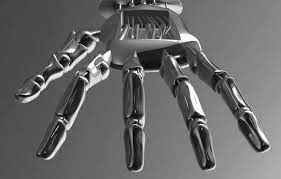
Breaking News
 The Self-Sufficiency Myth No One Talks About
The Self-Sufficiency Myth No One Talks About
 We Investigated The Maui Fires and The Cover-Up is Worse Than We Thought | Redacted
We Investigated The Maui Fires and The Cover-Up is Worse Than We Thought | Redacted
 The Amish Secret to Keeping Pests Out of Your Garden Forever
The Amish Secret to Keeping Pests Out of Your Garden Forever
 Scott Ritter: Full-Scale War as Iran Attacks All U.S. Targets
Scott Ritter: Full-Scale War as Iran Attacks All U.S. Targets
Top Tech News
 US particle accelerators turn nuclear waste into electricity, cut radioactive life by 99.7%
US particle accelerators turn nuclear waste into electricity, cut radioactive life by 99.7%
 Blast Them: A Rutgers Scientist Uses Lasers to Kill Weeds
Blast Them: A Rutgers Scientist Uses Lasers to Kill Weeds
 H100 GPUs that cost $40,000 new are now selling for around $6,000 on eBay, an 85% drop.
H100 GPUs that cost $40,000 new are now selling for around $6,000 on eBay, an 85% drop.
 We finally know exactly why spider silk is stronger than steel.
We finally know exactly why spider silk is stronger than steel.
 She ran out of options at 12. Then her own cells came back to save her.
She ran out of options at 12. Then her own cells came back to save her.
 A cardiovascular revolution is silently unfolding in cardiac intervention labs.
A cardiovascular revolution is silently unfolding in cardiac intervention labs.
 DARPA chooses two to develop insect-size robots for complex jobs like disaster relief...
DARPA chooses two to develop insect-size robots for complex jobs like disaster relief...
 Multimaterial 3D printer builds fully functional electric motor from scratch in hours
Multimaterial 3D printer builds fully functional electric motor from scratch in hours
 WindRunner: The largest cargo aircraft ever to be built, capable of carrying six Chinooks
WindRunner: The largest cargo aircraft ever to be built, capable of carrying six Chinooks
Terminator-style Synthetic Covering for Robots Mimics Human Skin and Heals Itself

Now, real-life scientists have developed a synthetic skin for robots that "heals" itself and possesses a human-like sense of touch. Researchers say this material could potentially make people more comfortable with artificial intelligence in homes and workplaces. It may also contribute to the development of more realistic humanoid robots.
"We've achieved what we believe to be the first demonstration of a multi-layer, thin film sensor that automatically realigns during healing," says Ph.D. candidate Chris Cooper, a co-author of the study, in a media release. "This is a critical step toward mimicking human skin, which has multiple layers that all re-assemble correctly during the healing process."
Human skin has extraordinary qualities, such as sensing temperature, pressure, and texture, stretching and recovering repeatedly, and serving as a protective barrier against environmental threats. The researchers at Stanford University aimed to replicate these features by using layered synthetic materials.

 RNA Crop Spray: Should We Be Worried?
RNA Crop Spray: Should We Be Worried?

